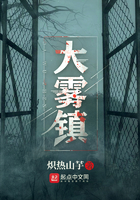"By the way," said Raidler, suddenly remembering, "that fellow I sent along with them--McGuire--is he working yet?""I do not know," said Ylario. "Mans from the camp come verree few times to the ranch. So plentee work with the leetle calves. They no say. Oh, I think that fellow McGuire he dead much time ago.""Dead!" said Raidler. "What you talking about?""Verree sick fellow, McGuire," replied Ylario, with a shrug of his shoulder. "I theenk he no live one, two month when he go away.""Shucks!" said Raidler. "He humbugged you, too, did he? The doctor examined him and said he was sound as a mesquite knot.""That doctor," said Ylario, smiling, "he tell you so? That doctor no see McGuire.""Talk up," ordered Raidler. "What the devil do you mean?""McGuire," continued the boy tranquilly, "he getting drink water outside when that doctor come in room. That doctor take me and pound me all over here with his fingers"--putting his hand to his chest--"Inot know for what. He put his ear here and here and here, and listen--I not know for what. He put little glass stick in my mouth. He feel my arm here. He make me count like whisper--so--twenty, /treinta/, /cuarenta/. Who knows," concluded Ylario, with a deprecating spread of his hands, "for what that doctor do those verree droll and such-like things?""What horses are up?" asked Raidler shortly.
"Paisano is grazing out behind the little corral, /senor/.""Saddle him for me at once."Within a very few minutes the cattleman was mounted and away. Paisano, well named after that ungainly but swift-running bird, struck into his long lope that ate up the ground like a strip of macaroni. In two hours and a quarter Raidler, from a gentle swell, saw the branding camp by a water hole in the Guadalupe. Sick with expectancy of the news he feared, he rode up, dismounted, and dropped Paisano's reins.
So gentle was his heart that at that moment he would have pleaded guilty to the murder of McGuire.
The only being in the camp was the cook, who was just arranging the hunks of barbecued beef, and distributing the tin coffee cups for supper. Raidler evaded a direct question concerning the one subject in his mind.
"Everything all right in camp, Pete?" he managed to inquire.
"So, so," said Pete, conservatively. "Grub give out twice. Wind scattered the cattle, and we've had to rake the brush for forty mile.
I need a new coffee-pot. And the mosquitos is some more hellish than common.""The boys--all well?"Pete was no optimist. Besides, inquiries concerning the health of cow-punchers were not only superfluous, but bordered on flaccidity. It was not like the boss to make them.
"What's left of 'em don't miss no calls to grub," the cook conceded.
"What's left of 'em?" repeated Raidler in a husky voice. Mechanically he began to look around for McGuire's grave. He had in his mind a white slab such as he had seen in the Alabama church-yard. But immediately he knew that was foolish.
"Sure," said Pete; "what's left. Cow camps change in two months.
Some's gone."
Raidler nerved himself.
"That--chap--I sent along--McGuire--did--he--""Say," interrupted Pete, rising with a chunk of corn bread in each hand, "that was a dirty shame, sending that poor, sick kid to a cow camp. A doctor that couldn't tell he was graveyard meat ought to be skinned with a cinch buckle. Game as he was, too--it's a scandal among snakes--lemme tell you what he done. First night in camp the boys started to initiate him in the leather breeches degree. Ross Hargis busted him one swipe with his chaparreras, and what do you reckon the poor child did? Got up, the little skeeter, and licked Ross. Licked Ross Hargis. Licked him good. Hit him plenty and everywhere and hard.
Ross'd just get up and pick out a fresh place to lay down on agin.
"Then that McGuire goes off there and lays down with his head in the grass and bleeds. A hem'ridge they calls it. He lays there eighteen hours by the watch, and they can't budge him. Then Ross Hargis, who loves any man who can lick him, goes to work and damns the doctors from Greenland to Poland Chiny; and him and Green Branch Johnson they gets McGuire into a tent, and spells each other feedin' him chopped raw meat and whisky.
"But it looks like the kid ain't got no appetite to git well, for they misses him from the tent in the night and finds him rootin' in the grass, and likewise a drizzle fallin'. 'G'wan,' he says, 'lemme go and die like I wanter. He said I was a liar and a fake and I was playin'
sick. Lemme alone.'
"Two weeks," went on the cook, "he laid around, not noticin' nobody, and then--"A sudden thunder filled the air, and a score of galloping centaurs crashed through the brush into camp.
"Illustrious rattlesnakes!" exclaimed Pete, springing all ways at once; "here's the boys come, and I'm an assassinated man if supper ain't ready in three minutes."But Raidler saw only one thing. A little, brown-faced, grinning chap, springing from his saddle in the full light of the fire. McGuire was not like that, and yet--In another instant the cattleman was holding him by the hand and shoulder.
"Son, son, how goes it?" was all he found to say.
"Close to the ground, says you," shouted McGuire, crunching Raidler's fingers in a grip of steel; "and dat's where I found it--healt' and strengt', and tumbled to what a cheap skate I been actin'. T'anks fer kickin' me out, old man. And--say! de joke's on dat croaker, ain't it?
I looked t'rough the window and see him playin' tag on dat Dago kid's solar plexus.""You son of a tinker," growled the cattleman, "whyn't you talk up and say the doctor never examined you?""Ah--g'wan!" said McGuire, with a flash of his old asperity, "nobody can't bluff me. You never ast me. You made your spiel, and you t'rowed me out, and I let it go at dat. And, say, friend, dis chasin' cows is outer sight. Dis is de whitest bunch of sports I ever travelled with.
You'll let me stay, won't yer, old man?"
Raidler looked wonderingly toward Ross Hargis.
"That cussed little runt," remarked Ross tenderly, "is the Jo-dartin'est hustler--and the hardest hitter in anybody's cow camp."















